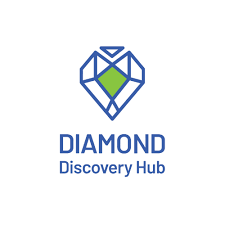Activation, Utilization, and Exchange of Existing Knowledge Among Employees in Organizations
DOI:
https://doi.org/10.37886/ip.2023.009Abstract
Research Question (RQ): We inquire about enabling the utilization of existing knowledge among employees in the studied organizations and the methods to activate various dimensions of employee knowledge within the organization. The goal is to promote employees' readiness for mutual knowledge exchange..
Purpose: The purpose is to discover ways to utilize the existing knowledge of employees and methods to activate dimensions of employees' knowledge within the studied organizations.
Method: Based on a theoretical literature review, we initiate the research protocol using the Delphi technique, where experts respond to open questions. The process concludes with achieving consensus in the third round. The developed questionnaire is then distributed among engineers of all age groups working in large manufacturing organizations.
Results: Key factors for knowledge activation include collaboration in the work process, mentoring, participation in projects, orientation programs, and internal education. The development of a culture that encourages knowledge sharing, as well as the recognition and development of individuals' competencies, especially in mixed-age and expertise teams, are crucial for successful knowledge exchange and utilization. Encouraging lifelong learning, participating in mentoring programs, and establishing effective processes for knowledge exchange are recommended, enhancing organizational culture.
In the second part of the research, we confirmed the significant impact of using existing knowledge (H1) on knowledge exchange among engineers in manufacturing organizations, observing a 13.2 % positive change, further validated by an F-test and effect size (f2 = 0.160). We also statistically confirmed the importance of knowledge activation (H2), although with a relatively small effect size (f2 = 0.070), evaluated through appropriate statistical tests. The empirical contribution reveals that using existing knowledge and knowledge activation significantly influence knowledge exchange among engineers in selected organizations in Slovenia. Specifically, we identified that knowledge activation explains 7 % of the variability, while the use of existing knowledge contributes 13.2 % to knowledge exchange. Both variables demonstrate a positive effect on the process of knowledge exchange in the context of manufacturing organizations.
Organization: The impact of the study on managers and organizations lies in providing them with concrete guidance for effective knowledge management in organizations. Managers can formulate policies and strategies for knowledge exchange based on the results, enhancing organizational culture. The research encourages the establishment of mentoring procedures, participation in projects, onboarding programs, and internal education to promote knowledge exchange, crucial for efficient management of employees. The study results offer specific directions for shaping policies and strategies for knowledge exchange in companies.
Society: The impact of the research on society is reflected in its contribution to improved knowledge management in organizations, leading to an enhanced working environment and more successful business operations. Emphasizing collaboration, mentorship, and knowledge exchange also promotes lifelong learning and the development of individual competencies. This can positively influence innovations, productivity, and the competitiveness of organizations, yielding long-term positive effects on society.
Originality: The value of the research is evident in the combination of knowledge activation and the utilization of existing knowledge, with an emphasis on specific strategies for knowledge exchange in the context of engineering manufacturing organizations in Slovenia. The study contributes to a broader understanding of the dynamics of knowledge exchange and provides practical guidelines for policymakers, owners, and managers of organizations.
Limitations / further research: We recommend that future researchers expand the geographic scope of their studies to increase the generalizability of results. We also suggest the inclusion of a diverse sample of organizations from various sectors, not limited to large manufacturing companies, to provide a more comprehensive insight into the dynamics of knowledge exchange. Additional methods to enhance participant responsiveness and a focus on monitoring the long-term impacts of global events on organizations could be beneficial contributions to a broader understanding of strategies involving the utilization of existing knowledge, knowledge activation, and knowledge exchange in organizations.
Additional Files
Published
How to Cite
Issue
Section
License
Copyright (c) 2023 Magda Lužar

This work is licensed under a Creative Commons Attribution-ShareAlike 4.0 International License.
![]()








